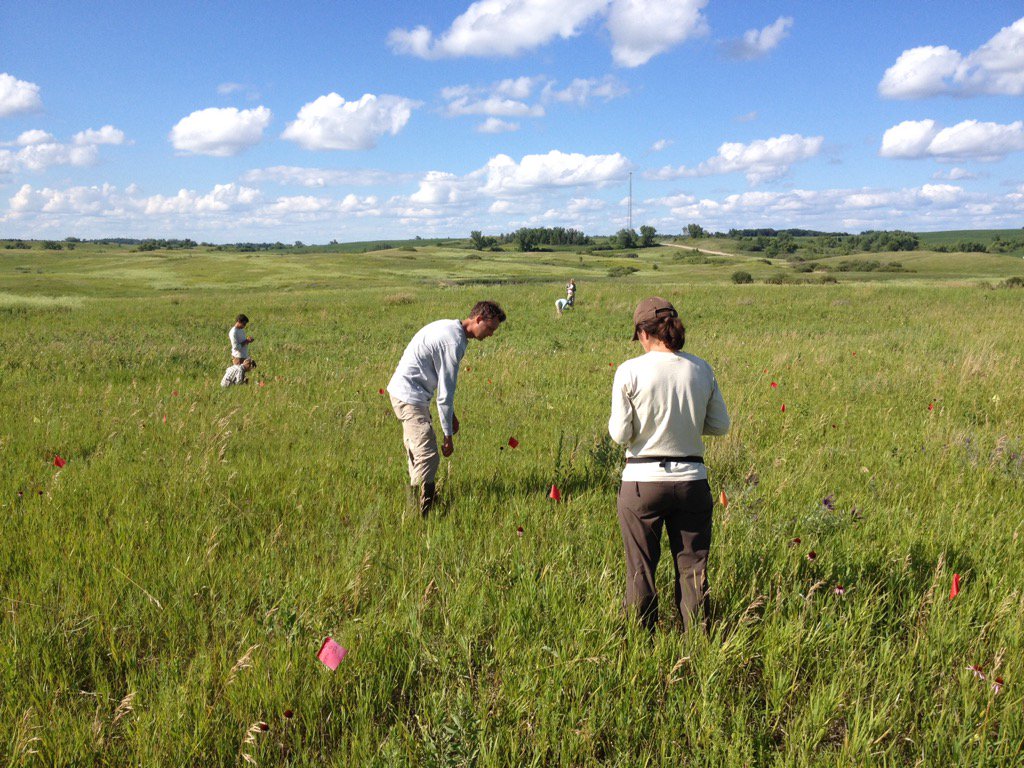To examine the role flowering phenology plays in the reproduction of Echinacea angustifolia, Jennifer Ison planted experimental plot 2 (exPt 2) in 2006 with 3961 individuals selected for extreme (early or late) flowering timing, or phenology. In 2016, we monitored the start and end dates of flowering for the 570 flowering plants (933 heads) in the plot. The first head started shedding pollen on June 22 and the latest bloomer ended flowering on August 8th. Peak flowering was on July 7th, when 810 heads were flowering. Using the phenological data collected this summer, we will explore how flowering phenology influences reproductive fitness and estimate the heritability of flowering time in Echinacea angustifolia.

Tracking phenology for 900+ heads in exPt2 was a big job. Here, three teams assess phenology on a nice day at exPt 2.
Start year: 2006
Location: Experimental Plot 2, Hegg Lake WMA
Overlaps with: phenology in experimental plots, phenology in the remnants
Physical specimen: We harvested 870 heads from exPt 2. We were unable to harvest some heads which had been grazed by rodents. We brought the harvest back to the lab, where we will count fruits and assess seed set. Jennifer previously collected tissue samples from all individuals in the plot and plans to use these to genotype all of the individuals that flowered in 2016 this year and determine their parentage in exPt 1.
Data collected: We visit all plants with flowering heads every three days until they are done flowering to record start and end dates of flowering for all heads. We managed phenology data in R and added it to the full dataset.
Products: Will estimated heritability of flowering time using the data from 2015 and presented his findings this summer at ESA (see his poster here). He is continuing this work by assessing how heritability estimates differ between two years. He is comparing flowering in 2015 (a burn year) and 2016 (a non-burn year).
You can find more information about our experiment the heritability of flowering time and links to previous flog posts regarding this experiment at the background page for the experiment.

Leave a Reply